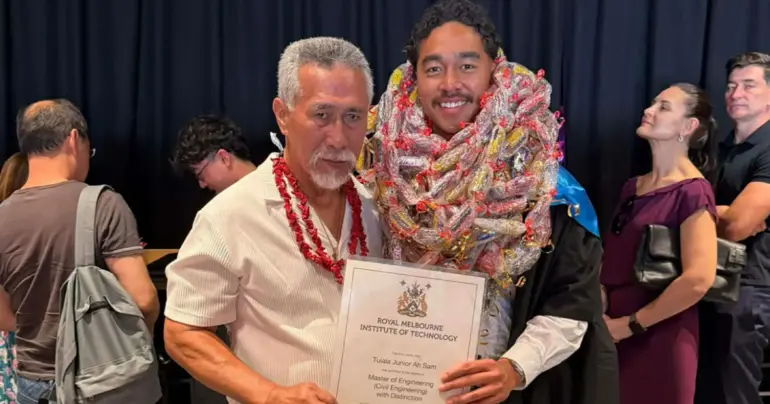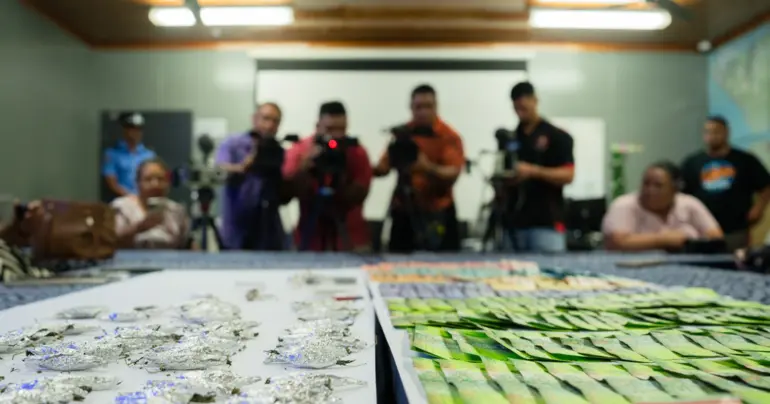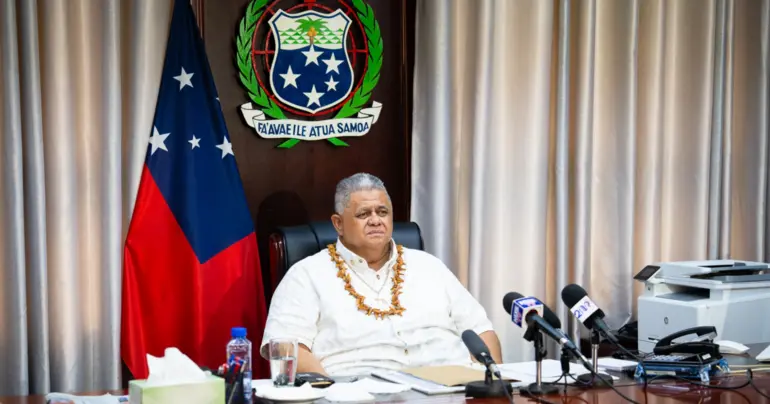L.T.C. court of appeal unveiled
 By Matai'a Lanuola Tusani T - Ah Tong
•
18 January 2021, 10:20PM
By Matai'a Lanuola Tusani T - Ah Tong
•
18 January 2021, 10:20PM
A Samoan lawyer who is a matai and is qualified to be a Supreme Court Judge is one of four panel members who will preside over the newly established Land and Titles Court of Appeal.
The constitutional requirement is amongst changes to the structure of the Land and Titles Court (L.T.C.) after the Parliament voted in favour of the Constitution Amendment Bill 2020 in December.
That provision – for a Samoan lawyer with a matai title qualified to be a Supreme Court Judge sitting as one of four panel members of the Land and Titles Court of Appeal – is a recent addition to the new law.
According to the Act, a Samoan lawyer who is a matai and is qualified to be a Judge of the Supreme Court, is to be appointed by the Head of State on the advice of the President.
The Chair of the Land and Titles Court of Appeal will be a retired Samoan Judge of the Supreme Court or a retired President as the Chairperson of the Court to be appointed by the Head of State on the advice of the Cabinet.
The third member of the bench is another Samoan Judge of the Supreme Court to be appointed by the Head of State on the advice of the Chief Justice and (ii) is Chairperson in the absence of the Chairperson.
Furthermore, the constitutional changes stipulate that the President or a retired Deputy President or a retired Vice President of the L.T.C. is to be appointed by the Head of State acting on the advice of the President is the fourth member of the Appellant Court.
It is also by law that any three members of the Land and Titles Court of Appeal and Review may at any one sitting exercise the powers of the Land and Titles Court of Appeal and Review.
The Appellant Court will have the jurisdiction to hear and determine an appeal from a decision of the Land and Titles High Court “of managing and constitutional ground of such petition as provided in the act.”
In addition, the decision of the Appellant Court is final and “no other Court may question by way of appeal, a review or investigation or any other means.”
A letter dated 6 April 2020 from the Judges of the Supreme Court to the Samoa Law Reform Commissioner raised concerns about the significant emphasis on the role of retired Supreme Court Judges in the provisions.
The Judges said the provisions in dealing with the judiciary members should be left to the Chief Justice and the Judicial Service Commission to make appointments, based on the needs of the Judiciary at any given time, and the availability of suitable persons to fill those posts.
“This allows for flexibility and the Chief Justice and the Judicial Service Commission are the persons best placed to assess the current and future needs of the Judiciary,” the members of the bench wrote.
“The proposed amendments are premised on a fundamental and incorrect assumption that there would be ‘retired Supreme Court judges’ available and or willing to preside.
“The problem is retired Supreme Court judges may undertake other roles inconsistent with judicial office, they may have conflicts in terms of the matters before the Court, they may not wish to preside or sit at all or be otherwise unfit or unavailable.”
The Judges claimed that there would only be three retired Supreme Court justices available to fill the positions in the autonomous Land and Titles Courts.
They are former Chief Justice Patu Falefatu Sapolu, Justice Lesatele Rapi Vaai and Tuiloma Neroni Slade.
“Of these three, Sapolu has declared his candidature for the next general election,” the Judges stated in their letter. “On his retirement, he also had a number of long outstanding judgments that are not the subject of appeals to the Court of Appeal.
“Vaai currently presides in the High Court of Nauru and travels there regularly for these purposes and Tuiloma Neroni Slade has not presided in a Supreme Court proceeding in over 30 years.
“Given these issues and the limited number of currently available retired Supreme Court judges, there is significant risk of the Judiciary being unable to field a retired judge to sit in such matters.
“If no such judge is available, this will impact on the ability of the Judiciary to undertake its newly designated now Constitutional functions.”
 By Matai'a Lanuola Tusani T - Ah Tong
•
18 January 2021, 10:20PM
By Matai'a Lanuola Tusani T - Ah Tong
•
18 January 2021, 10:20PM











